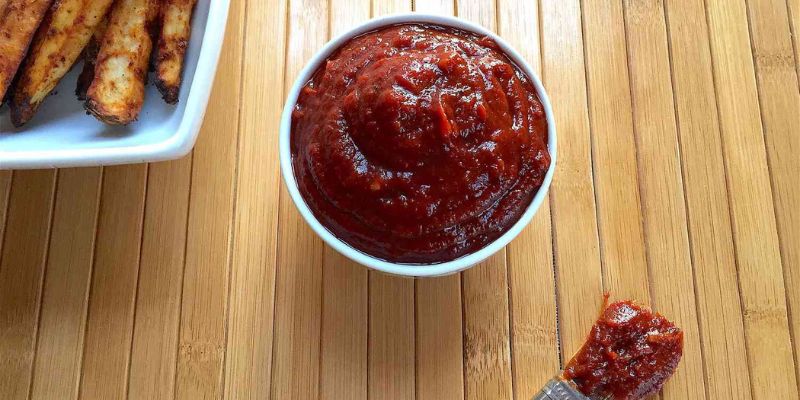If you’ve ever tried to lose weight, chances are that at some point you were tempted to reach for a zero calorie drink as a convenient and seemingly harmless way to reduce your overall caloric intake each day. But did you know that research indicates drinking these kinds of drinks could potentially lead to zero actual weight loss? And the true effects on our body? While there is much talk about how beneficial artificial sweeteners can be, this blog post will take an in-depth look at what science tells us respectively – so keep reading!
Introducing the Zero Calorie Myth:
When it comes to dieting, many of us have fallen victim to the zero calorie myth. We've all seen those tempting labels claiming to offer all the taste with none of the calories, but is it really possible? The truth is, it's not. While products like zero calorie sweeteners can help cut back on overall calorie intake, they still contain a small number of calories. The good news is, it's not about completely eliminating calories from our diets, but rather finding balance and making healthier choices.
Popular Beverages and their Claims:
Beverages such as energy drinks, sports drinks, and smoothies have become increasingly popular in recent years. With their bold claims of increased performance, hydration, and nutrition, it's no wonder why people are turning to these drinks. It's important to examine these claims and their potential effects on our bodies.
Are these drinks truly delivering on their promises, or are we just buying into clever marketing tactics? By taking a closer look at the ingredients and nutritional information of these popular beverages, we can make more informed choices about what we're putting into our bodies.
The Hidden Ingredients in Diet Drinks:

Have you ever wondered what exactly goes into your favorite diet drink? While they may claim to have zero calories, these beverages can still contain hidden ingredients that may surprise you. Artificial sweeteners, preservatives, and coloring agents are just a few of the many additives that are commonly found in diet drinks.
Some of these ingredients have been linked to various health concerns, including digestive issues and even cancer. As consumers become more health-conscious and concerned about what they're putting into their bodies, exploring the hidden ingredients in diet drinks has become an important topic.
The Truth about 'Zero Calorie' Claims:
The reality is, even though a drink may be labeled as 'zero calorie', it's important to remember that it still contains ingredients that our bodies need to process. These drinks are not truly calorie-free and can actually lead to increased cravings and overeating due to the lack of nutritional value. In fact, studies have shown that artificial sweeteners can disrupt our body's natural mechanisms for regulating hunger and satiety, leading to weight gain rather than weight loss.
Deciphering the Ingredients Label:
When it comes to making healthier choices, reading and understanding the ingredients label is key. In addition to looking for hidden additives, it's important to pay attention to the overall nutritional value of a drink. Is it providing any nutrients or is it simply empty calories? Opting for natural and whole ingredients is always the best choice.
The Role of Artificial Sweeteners:
Artificial sweeteners, such as sucralose and aspartame, have been a popular alternative to sugar for many years. Studies have shown that these sweeteners may not be as beneficial as we once thought. They can actually alter our gut microbiome and negatively impact our body's metabolism, leading to weight gain rather than weight loss.
Health Risks Associated with Preservatives:
Along with artificial sweeteners, diet drinks also often contain preservatives to prolong their shelf life. These additives have been linked to various health concerns and should be avoided when possible. Choosing fresh and natural beverages is a healthier option for our bodies in the long run.
Artificial Coloring: What's the Harm?
Artificial coloring agents are another common ingredient found in diet drinks. These additives have been linked to behavioral issues in children and may also cause allergic reactions in some individuals. Choosing beverages without added coloring is a healthier choice for both our bodies and the environment.
The Impact of Hidden Sugars:
While diet drinks may claim to be sugar-free, they often contain hidden sugars in the form of carbohydrates and other additives. These hidden sugars can lead to an increase in blood sugar levels and contribute to weight gain. It's important to read the nutrition label carefully and opt for natural and whole ingredients whenever possible.
Decoding the Marketing Tactics:
Many of these popular beverages use clever marketing tactics to appeal to consumers, making bold claims and using buzzwords that may not necessarily be supported by science. It's important to take a critical look at the information provided and do our own research before purchasing these products.
Realities of Artificial Sweeteners:
Artificial sweeteners have been a topic of debate and scrutiny for years now, with many questions regarding their long-term effects on our health. While they are known to be a low-calorie alternative to sugar, studies have shown that they may have negative impacts on our bodies, such as increasing the risk of metabolic disorders and even cancer.
Despite this, many people continue to use them in their diet, often not fully understanding the realities of what they are consuming. It's important for us to uncover these realities and to make informed decisions about our health and our diets. With more research emerging on the effects of artificial sweeteners, it's essential to stay up-to-date and informed on the potential risks and benefits of consuming them.
Healthy Alternatives to Zero Calorie Drinks:

Are you trying to cut back on calories but tired of drinking plain water or sugar-free drinks? It's time to explore some healthy alternatives to zero calorie drinks! One option is to infuse your water with fruits and herbs for some flavorful hydration.
Another idea is to try coconut water, which is low in calories and packed with electrolytes. If you're in the mood for something fizzy, give kombucha a try. This fermented tea is not only low in calories but also contains beneficial probiotics. So, next time you're looking for a refreshing drink, skip the soda and try one of these healthy alternatives instead!
Conclusion:
Many of us have been tempted by zero calorie drinks as a way to enhance our weight loss efforts, but now we know better. We no longer need to rely on these misleading advertisements and hidden ingredients that in reality do more harm than good. So if you’re really looking for an effective way to reach your fitness goals then start shifting away from the empty promises of zero calorie drinks. Healthy proposal options such as tea and natural juices are a great start, and you can even look into adding superfoods for additional nutritional benefits!




